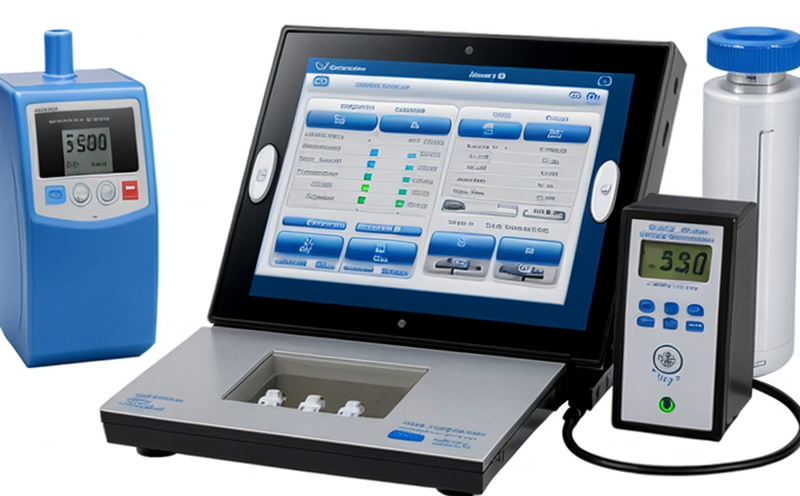Particulate Contamination Testing in Infusion Systems
Particulate contamination testing is a critical component of ensuring the safety and efficacy of medical devices, particularly infusion pumps and drug delivery systems. This form of testing ensures that the devices do not introduce harmful particles into the bloodstream during administration of medications or fluids.
The presence of particulates can lead to serious complications in patients, such as embolisms, infections, and even organ damage. The challenge lies in identifying and quantifying these particulates within the tight tolerances required by regulatory bodies like the FDA and ISO standards.
Our laboratory utilizes advanced filtration techniques and high-resolution microscopy to conduct particle count testing on infusion systems. This process involves the use of specialized media that captures particles down to sub-micron sizes, which are then quantified based on size range and concentration levels.
The methodology employed ensures compliance with ISO 14350:2008, a standard widely recognized for its stringent requirements in particulate contamination testing. This includes the use of filtration units designed to trap particles, followed by analysis under controlled lighting conditions using scanning electron microscopy (SEM).
For R&D engineers and quality managers responsible for ensuring product safety, this service provides critical insights into potential contaminants that may arise during manufacturing processes. By identifying these issues early in the development cycle, manufacturers can implement necessary corrective actions to prevent costly recalls and ensure patient safety.
We also offer a range of additional services including sterility testing, endotoxin testing, and biocompatibility assessments which complement particulate contamination testing by providing a comprehensive evaluation of infusion systems. These tests are essential for demonstrating compliance with international standards such as ISO 10993-4:2018 and USP .
In summary, our particulate contamination testing service in infusion systems is designed to provide detailed insights into potential risks associated with particle introduction. This helps manufacturers maintain high quality standards while adhering to stringent regulatory requirements.
Scope and Methodology
The scope of our particulate contamination testing service includes the evaluation of infusion systems for any particulates that may be introduced during use. This involves a series of steps designed to ensure accurate detection and quantification.
- Filtration: Samples are filtered through precision-milled membranes to capture sub-micron particles.
- Visualization: Filtered samples are examined under high-resolution microscopes to identify and quantify particulates.
- Analysis: Data is collected on particle size distribution, concentration levels, and potential sources of contamination.
The methodology we employ complies with ISO 14350:2008 and other relevant international standards. This ensures that our results are reliable and can be used for regulatory submissions.
Industry Applications
- Hospitals and Clinics: To ensure patient safety by detecting potential contaminants in infusion systems.
- Pharmaceutical Companies: For quality control during the manufacturing process to prevent recalls due to contamination issues.
- OEMs: To enhance product design and development through early detection of particulate risks.
Quality and Reliability Assurance
Our service plays a pivotal role in maintaining the quality and reliability of infusion systems. By identifying particulate contamination, we help manufacturers meet stringent regulatory requirements such as FDA regulations and ISO standards.
- Regulatory Compliance: Ensuring adherence to international standards for particulate testing.
- Patient Safety: Minimizing the risk of harmful particles being introduced into patients' systems.
- Product Integrity: Detecting and addressing potential issues early in the development cycle.





